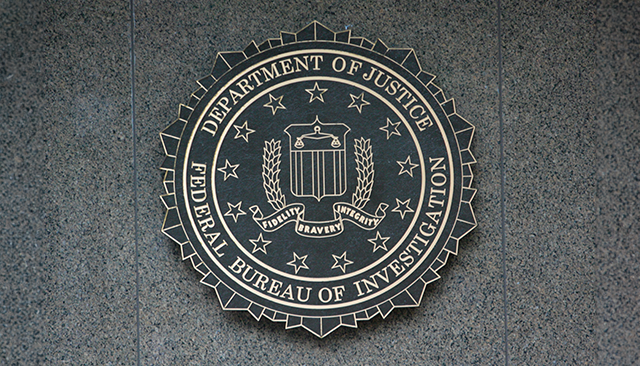A heated feud has emerged between the Republican party and the Federal Bureau of Investigation (FBI), which centers around the elusive FD-1023 form. This contentious document has become a flashpoint of political intrigue, with both sides fiercely defending their positions. In this article, we will explore the origins of the feud, the significance of the FD-1023 form, and the reasons behind the FBI’s reluctance to hand it over to Republicans.
The Republican Feud with the FBI and FD-1023
The FD-1023 form is a confidential document utilized by the FBI during its investigation of certain cases. It contains critical information about the Bureau’s investigative techniques, sources, and surveillance methodologies. In essence, the form serves as a safeguard to protect sensitive national security interests and maintain the integrity of ongoing investigations. Due to its highly classified nature, access to the FD-1023 form is tightly controlled, and its release is subject to strict protocols.
The FD-1023 form is used by the FBI to protect sensitive national security interests and maintain the integrity of ongoing investigations. As such, it is not a suitable document for making final judgments due to several key reasons:
- Lack of Context: The FD-1023 form is specific to a particular investigation and contains information on investigative techniques and sources related to that case. Without access to the full context of the investigation, making conclusions based solely on this limited document would be misleading and potentially inaccurate.
- Confidentiality and Security Concerns: Releasing the FD-1023 form to the public or even to lawmakers without proper safeguards can compromise national security. The sensitive information contained within the document could be exploited by adversaries or potentially jeopardize ongoing operations, putting lives at risk.
- Incomplete Picture: Investigations, especially those involving national security matters, are complex and multifaceted. Relying solely on the FD-1023 form would provide only a partial view of the situation, leading to an incomplete understanding of the case.
- Potential Misinterpretation: As a classified document, the FD-1023 form likely uses specialized language and code words that may be challenging to interpret accurately without the proper training and knowledge. Misinterpretation of the information could lead to incorrect assumptions and judgments.
- Possible Bias: Depending on the perspective of those requesting access to the document, there may be a risk of cherry-picking information to support pre-existing biases or political agendas. This could lead to a skewed representation of the facts and a failure to consider the broader context.
- Legal Implications: Public release of the FD-1023 form without proper authorization could violate laws related to classified information, potentially leading to legal repercussions for those involved in its dissemination.
The Republican Request
The Republican feud with the FBI began when a group of Republican lawmakers, citing concerns over the FBI’s alleged abuse of power, made a formal request to obtain the FD-1023 form related to a specific investigation. Their argument is rooted in the principle of transparency and oversight, asserting that Congress should have the right to access all relevant information, especially when it concerns potential government misconduct or infringement of civil liberties. They contend that the FBI’s reluctance to hand over the form raises suspicion and indicates a lack of accountability.
The FBI’s Position
On the other hand, the FBI has firmly resisted the Republicans’ demand to release the FD-1023 form. The Bureau maintains that disclosing such sensitive information could jeopardize national security, compromise ongoing investigations, and potentially endanger the lives of agents and sources involved. The FBI argues that strict confidentiality is essential for maintaining the effectiveness of their counterintelligence and counter-terrorism efforts. They stress that sharing the FD-1023 form without appropriate safeguards could set a dangerous precedent, leaving critical intelligence methods vulnerable to exploitation by adversaries.
Balancing Transparency and National Security
The crux of the Republican feud with the FBI lies in striking a balance between transparency and national security. On one hand, proponents of releasing the FD-1023 form argue that the public and Congress deserve access to relevant information to ensure that government agencies are acting responsibly and within the bounds of the law. They believe that transparency is a cornerstone of a healthy democracy and a vital check on potential abuses of power.
On the other hand, the FBI contends that safeguarding sensitive intelligence is paramount to protect the nation from various threats. They fear that compromising their investigative methods could undermine the Bureau’s ability to effectively combat terrorism, espionage, and cyber threats. Striking the right balance between transparency and national security remains a complex challenge, with each side deeply entrenched in their positions.
While transparency and oversight are crucial elements of a healthy democracy, relying solely on the FD-1023 form to make final judgments would be impractical and risky. Instead, any examination of sensitive documents like the FD-1023 form must be conducted within a secure and controlled environment, with the involvement of appropriate oversight entities to ensure national security is maintained while addressing legitimate concerns.
The Republican Feud with the FBI: Potential Solutions
Finding common ground in this Republican feud with the FBI may seem like an arduous task, but it is not impossible. One potential solution could involve establishing a bipartisan committee that includes members of Congress, security experts, and legal scholars. This committee could review sensitive documents, including the FD-1023 form, under strict confidentiality measures. This way, relevant information can be shared with oversight entities without compromising national security.
Conclusion
The Republican feud with the FBI over the FD-1023 form exemplifies the perennial struggle between transparency and national security in a democratic society. While both sides have valid arguments, it is crucial to strike a balance that respects the need for oversight without undermining essential intelligence capabilities. As this complex feud unfolds, it becomes evident that addressing these issues requires a delicate and thoughtful approach to safeguarding both democracy and national security.











